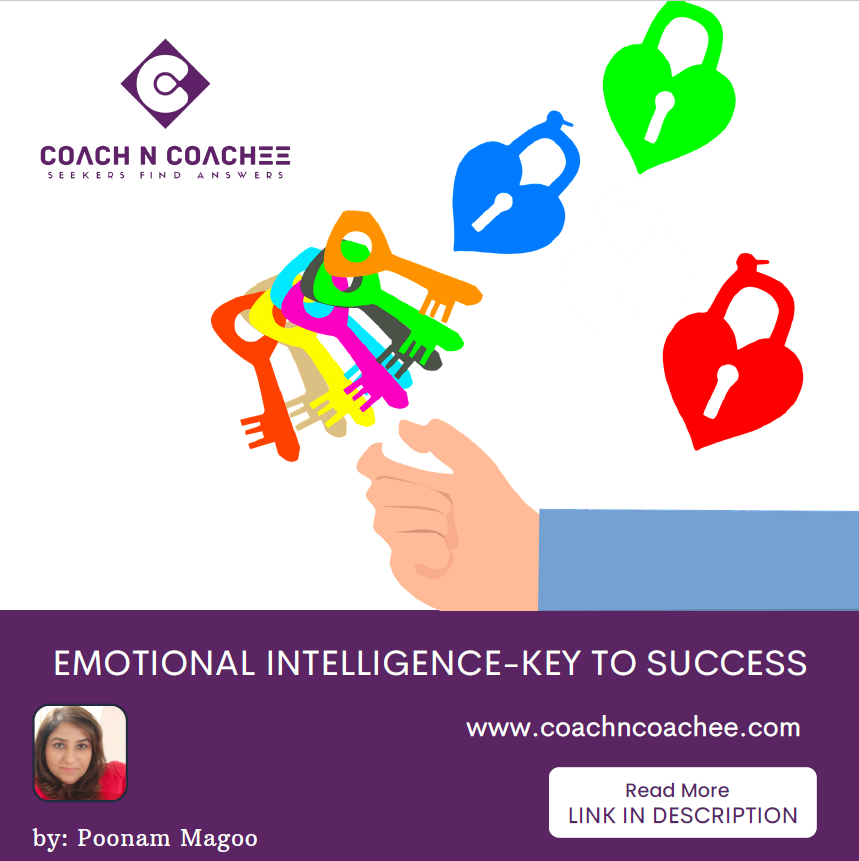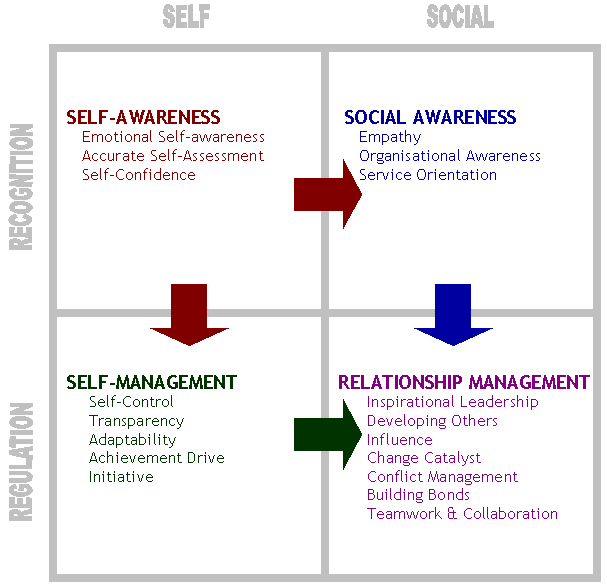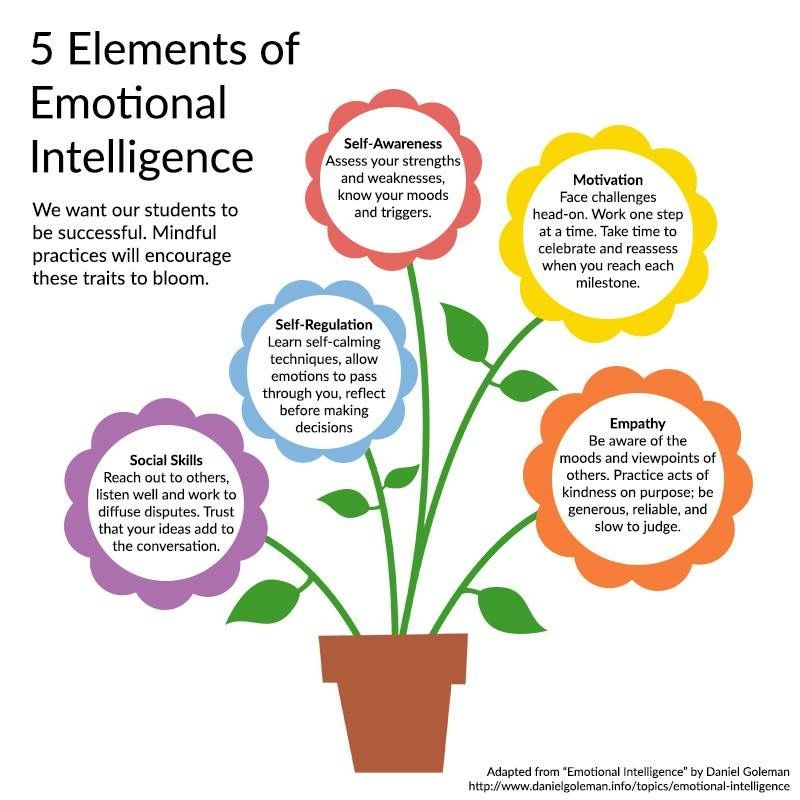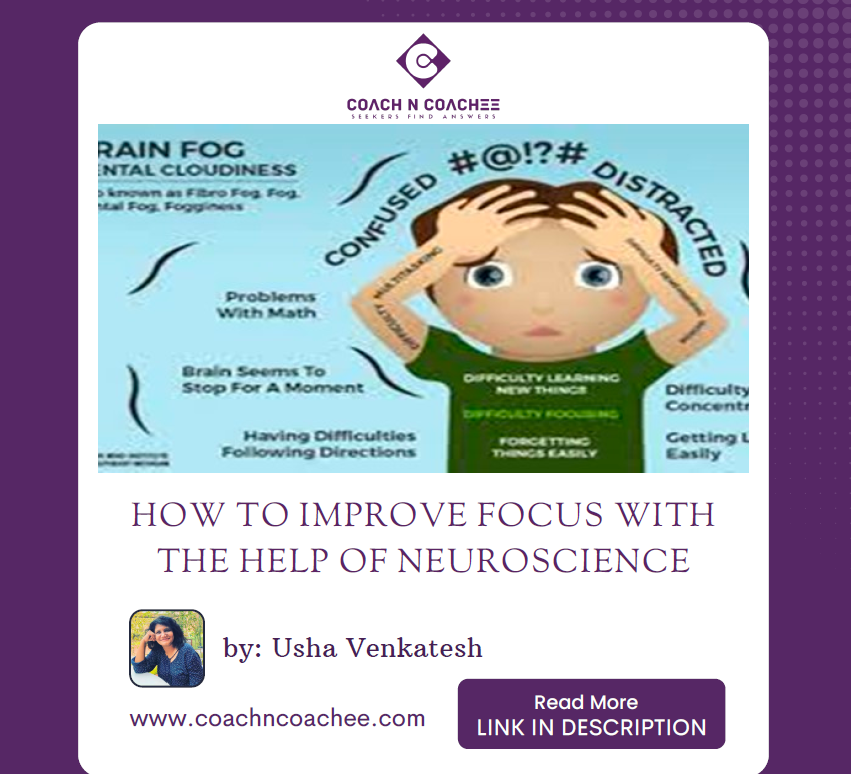
Emotional Intelligence-Key to Success
Internationally renowned psychologist and exponent of Emotional Intelligence, Daniel Goleman, describes the term as, “The capacity for recognizing our own feelings, and those of others---for motivating ourselves and managing emotions well in ourselves and in our relationships.”
For me, emotional intelligence precisely translates to meaning ‘the intelligent use of emotions’, a critical facet needed by leaders to be successful. Goleman has said that ‘85% EQ and 15% IQ’ is what is needed for leadership success. Emotional Intelligence can help any person or leader to bridge the gap between ‘Who I am?’ and ‘Who do I want to be?’
IQ can help an individual gain a leadership position but EQ is what will keep and make them successful in the position and help them manage the stress and emotions of situations and team members that come with it. As a leader with a high EQ you would be able to navigate the interpersonal complexities of the workplace, motivate others, provide direction, while exceling in your career and life. Specifically, an emotionally intelligent leader can:
a) Identify and embrace emotions – by paying attention to the feelings and body language of others and responding accordingly.
b) Consciously step in and out of emotions - .by putting yourself in someone else’s shoes and staying in control of the situation by knowing your values, holding yourself accountable, and practicing being calm.
c) Differentiate drama from facts – by paying attention to emotions showing genuineness and integrity.
d) Remember that a person is much more than the perceivable emotion – by understanding that we all go through a range of emotions in a single day and that we need to be humble enough to realize that not one single emotion defines us.
e) Replace counterproductive emotions with productive ones – by exercising self-awareness which allows us to slow down and examine our emotions and understand that no matter what the situation, we can always choose how you react to it. By working constantly towards your goals and having extremely high standards for the quality of your work.

How can one achieve this level of mastery? Practice, practice and practice and by consciously enjoy being with your emotions. Here’s an example of an outcome of a high EQ in motion and a counterproductive low EQ.
If there’s anything the last 12 months has taught us is that we need to free ourselves from judgment and always seek the greater good, both in the situation and the people around.
Akash Gupta (name changed) works for an MNC and was a high performer, having a good innings with the company and a great relationship with his boss. His boss resigned last year before the pandemic and Akash and his team were introduced to their new leader, Preeti Singh (name changed).
Covid-19 ensued and changes were taking place fast and in a drastic manner and needless to say there was a lot of stress for Akash about working with a new leader in this environment not only because of the great rapport Akash shared with his previous leader, but also the timing, that anyone would agree could not be more uncertain. Suddenly from being in a great place in his career, Akash found himself and his 500 people team in an unpredictable position with everything from the work culture to their jobs and their salaries up in the air!
But Akash was patient and then was pleasantly surprised! He found Preeti to be full of empathy, deeply aware of the prevailing environment, and demonstrably a great reader and manager of her own emotions and those of others. She applied authentic communication skills, deep listening, and full control over herself to shine in such a complicated and ambiguous time and make all her direct reports very comfortable.
She effortlessly applied her EQ first to herself through self-perception and self-expression of her own emotions and successfully sailed through the ongoing difficult and unpredictable times of the pandemic. This was amplified by her decision-making and crisis management ability. Her first responsibility was towards the safety and mental well-being of all her people. Twelve months in to the Covid-19 saga, Akash and his team can confidently say that their new leader is not just a visionary but also real and resilient, compassionate, and a stellar communicator who has built valuable relationships with her team even in the midst of an unrelenting storm.
At the same MNC, meet Rajiv Malhotra. Although he has had a long innings in the same organization, he could not rise to the occasion during the pandemic. He took a very clinical view of the situation and did not seem to be concerned about the well-being or insecurities of his team, and in fact amplified their issues because he was not able to manage his feelings or insecurities. He had no qualms about shouting at team members for not being able to meet unreasonable expectations, threatening his subordinates with lay-offs, forced unpaid leave, and salary cuts. His team was shell-shocked and the toll showed on them by a complete lack of motivation, trust, and ability to perform.
All else being equal, Preeti even with no advantage of previous work experience with the organization was able to navigate choppy waters because of her high emotional quotient.
What can we learn from Preeti?
• EQ is very important for leaders to succeed as they need to manage their emotions well as those of their team. It is demonstrated by exercising impulse control, empathy, flexibility, optimism.
• Emotions, judgment, or behaviour of any leader has a domino effect on employees, teams, groups, and the organizations, that serve as a mirror and reality test of the leader's true performance.
• A self-aware leader can take impactful actions to steer themselves and their teams towards success and with a strong repository of social skills can have a positive impact on the organization.
‘Emotion is energy in motion’ and leaders who understand the power in this abstract but very real concept and can apply it advantageously will make great strides in their life and in the lives of people they touch.
How to build high EQ:










